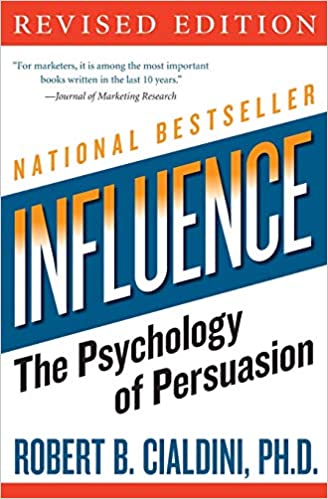Are you tired of always being around people who only talk about themselves? We all know someone who seems to suffer from the “Me, Myself, and I” syndrome—a self-centered personality that can be draining to be around. But how do you identify the red flags of this type of person? In this article, we will delve into the five critical signs to watch out for.
Firstly, self-centered individuals tend to dominate conversations, steering them towards their own experiences, achievements, and opinions. They struggle to listen attentively or show genuine interest in others. Secondly, they constantly seek validation and attention, often seeking the spotlight in every situation. Thirdly, they have little empathy and lack the ability to understand or consider other people’s feelings and perspectives.
Additionally, self-centered individuals often exhibit a sense of entitlement, expecting others to cater to their needs without reciprocation. Lastly, they have difficulty acknowledging their mistakes or taking responsibility for their actions.
Understanding these red flags will enable you to identify self-centered individuals in your life and evaluate how they affect your own well-being. Stay tuned as we explore this deeper and provide tips on how to navigate these relationships in a healthy manner.

Influence
by Robert Cialdini
⏱ 16 minutes reading time
🎧 Audio version available
Red flag #1: Lack of empathy towards others
Self-centered individuals tend to dominate conversations, steering them towards their own experiences, achievements, and opinions. They struggle to listen attentively or show genuine interest in others. This lack of empathy can manifest itself in various ways. For example, when someone shares their struggles or accomplishments, a self-centered person may respond with a dismissive remark or quickly divert the attention back to themselves. They may also fail to provide emotional support or offer comforting words when someone is going through a difficult time. Their inability to empathize can leave others feeling unheard and invalidated.
Moreover, self-centered individuals may display a lack of consideration for the feelings and needs of others. They may make decisions without consulting or considering the impact on those around them. This can create an environment where others feel neglected or unimportant. It’s important to recognize these signs of a lack of empathy as they can be detrimental to relationships and overall well-being.
Red flag #2: Constant need for attention and validation
One of the most noticeable red flags of a self-centered personality is the constant need for attention and validation. These individuals often seek the spotlight in every situation, making sure the focus is always on them. They may dominate conversations, interrupting or talking over others to ensure their voice is heard. This need for attention can be exhausting for those around them, as it leaves little room for others to contribute or share their own experiences.
Furthermore, self-centered individuals may go to great lengths to seek validation from others. They may constantly seek praise, compliments, or reassurance about their appearance, achievements, or abilities. This constant need for external validation can be draining for both the self-centered individual and those around them. It can create an unhealthy dynamic where others feel obligated to constantly stroke their ego or risk facing their wrath. Recognizing this need for attention and validation is crucial in understanding the dynamics at play in relationships with self-centered individuals.
Red flag #3: Difficulty accepting criticism or feedback
Self-centered individuals often struggle with accepting criticism or feedback. They may become defensive, dismissive, or even aggressive when faced with any form of constructive criticism. This unwillingness to acknowledge their flaws or mistakes can hinder personal growth and strain relationships. Instead of reflecting on their actions and taking responsibility, they may deflect blame onto others or make excuses to protect their self-image.
This difficulty in accepting criticism can create a toxic environment where open communication and growth are stifled. It can also lead to a lack of accountability, as self-centered individuals may never face the consequences of their actions. Recognizing this red flag is crucial in understanding how to navigate relationships with self-centered individuals and promote healthy communication.
Red flag #4: Inability to consider others’ perspectives
Self-centered individuals often struggle to consider or understand other people’s perspectives. They may be so focused on their own needs, desires, and opinions that they fail to see things from someone else’s point of view. This can lead to a lack of empathy, misunderstandings, and conflicts within relationships.
When faced with a different opinion or perspective, self-centered individuals may dismiss it outright or try to convince the other person that their viewpoint is the only valid one. They may struggle to compromise or find common ground, as their own needs and desires take precedence. This lack of consideration for others can lead to strained relationships and a breakdown in communication. Recognizing this red flag is essential in navigating interactions with self-centered individuals and fostering understanding and empathy.
Red flag #5: Manipulative behaviors and disregard for others’ feelings
Self-centered individuals may exhibit manipulative behaviors and a disregard for the feelings and well-being of others. They may use tactics such as guilt-tripping, gaslighting, or emotional manipulation to get what they want. They may disregard the boundaries of others and push them to their limits without any concern for the consequences.
These manipulative behaviors can cause significant harm to the mental and emotional well-being of those around them. They may leave others feeling used, drained, and emotionally exhausted. It’s important to recognize these signs of manipulation and set clear boundaries to protect yourself and maintain healthy relationships.
The impact of a self-centered personality on relationships and interactions
A self-centered personality can have a profound impact on relationships and interactions. It can create an imbalance of power, where one person’s needs and desires consistently take precedence over others. This can lead to feelings of resentment, frustration, and even isolation.
Relationships with self-centered individuals may lack depth and emotional intimacy. The focus is often on the self-centered individual, leaving little room for genuine connection and understanding. This can leave others feeling unheard, unimportant, and undervalued.
In addition, the constant need for attention and validation can create a competitive and superficial atmosphere within relationships. The self-centered individual may seek to outshine others, leaving little room for mutual support and growth.
Overall, a self-centered personality can be detrimental to the well-being and happiness of those in their orbit. It’s crucial to recognize the impact of such personality traits and take steps to navigate these relationships in a healthy manner.
How to deal with a self-centered person in your life
Dealing with a self-centered person in your life can be challenging, but there are strategies you can employ to maintain your own well-being and promote healthier interactions. Here are some tips:
1. Set clear boundaries: Establish and communicate your boundaries with the self-centered individual. Let them know what behaviors are acceptable and what is not. Stick to these boundaries and assertively communicate when they are crossed.
2. Practice self-care: Take care of yourself and prioritize your own well-being. Engage in activities that bring you joy, spend time with supportive friends and family, and prioritize self-care practices such as exercise, meditation, or hobbies.
3. Communicate assertively: When addressing issues or concerns with a self-centered person, communicate assertively but respectfully. Use “I” statements to express how their behavior affects you and what you would like to see change.
4. Seek support: Reach out to trusted friends, family, or a therapist to discuss your experiences and emotions. Having a support system can provide valuable perspective, guidance, and comfort.
5. Let go of expectations: Recognize that you cannot change a self-centered person’s behavior or mindset. Focus on managing your own reactions and expectations, rather than trying to change them.
Remember, you deserve to be in healthy and mutually fulfilling relationships. By implementing these strategies, you can protect your own well-being while navigating relationships with self-centered individuals.
Seeking professional help for self-centered personality traits
In some cases, self-centered personality traits may be deeply ingrained and require professional intervention. If you or someone you know exhibits extreme self-centered behaviors that significantly impact their relationships and overall well-being, seeking the help of a therapist or counselor can be beneficial.
A mental health professional can provide guidance, support, and tools to address underlying issues that contribute to self-centeredness. They can help individuals develop empathy, improve communication skills, and foster healthier relationships.
Remember, seeking professional help is not a sign of weakness but rather a courageous step towards personal growth and well-being.
Related: Unlocking the Reasons: 5 Clear Signs You’ve Given Up on Dating
Promoting empathy and self-awareness for healthier relationships
Identifying the red flags of a self-centered personality is the first step towards promoting healthier relationships. Lack of empathy, constant need for attention, difficulty accepting criticism, inability to consider others’ perspectives, and manipulative behaviors are all signs to watch out for.
By understanding these red flags, you can navigate relationships with self-centered individuals in a healthier manner. Setting boundaries, practicing self-care, communicating assertively, seeking support, and considering professional help when necessary are all strategies that can contribute to more fulfilling and balanced interactions.
Ultimately, promoting empathy and self-awareness is crucial for fostering healthier relationships. By recognizing and addressing self-centered behaviors, we can create a more compassionate and understanding world for ourselves and those around us.
What Is Snapreads?

With the Snapreads app, you get the key insights from the best nonfiction books in minutes, not hours or days. Our experts transform these books into quick, memorable, easy-to-understand insights you can read when you have the time or listen to them on the go.
